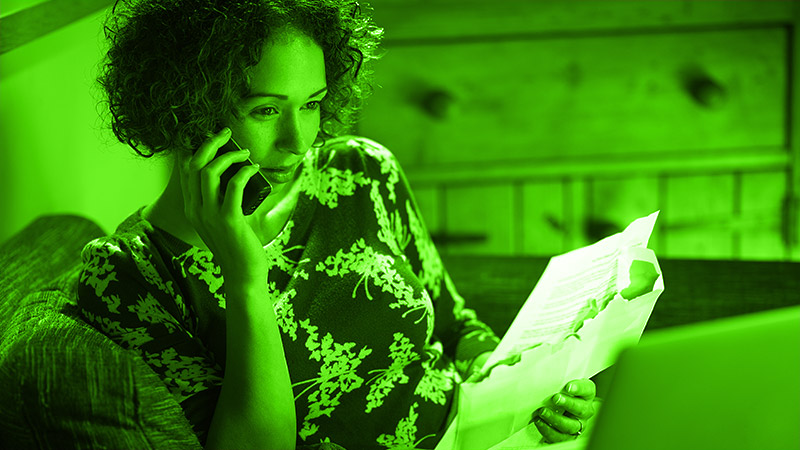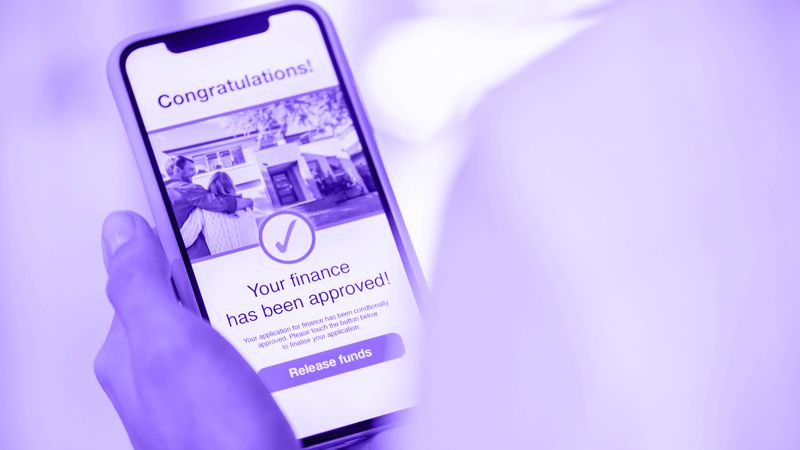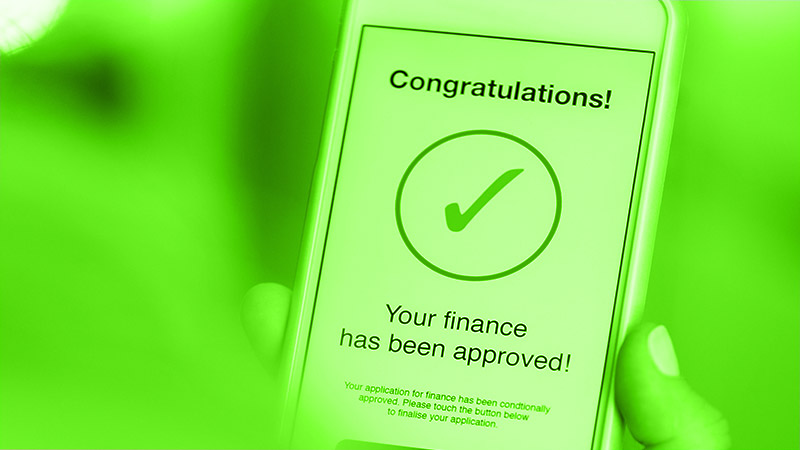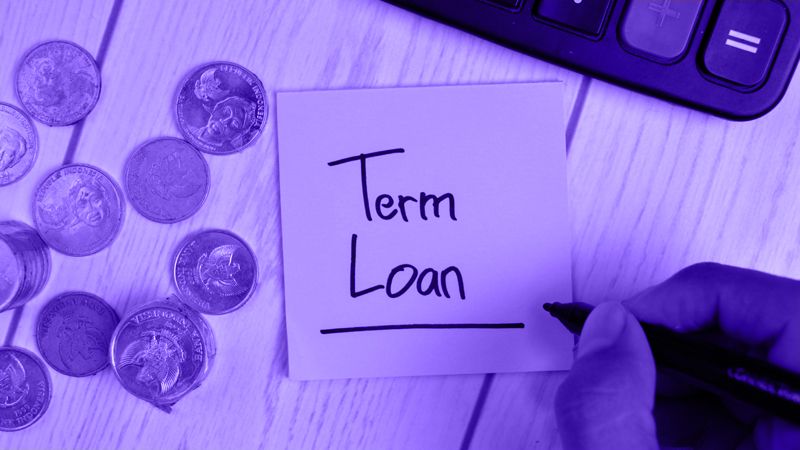An individual voluntary agreement (IVA) is a suitable solution if you’ve found yourself in overindebtedness.
It’s a legally binding and formal agreement between you and your creditors to repay all or part of your debt over a specified time.
To ensure you don’t worsen your situation and can consistently make monthly IVA payments, IVAs come with certain conditions you must accept, including restrictions on taking out further loans.
Let’s explore how you can secure a loan with an IVA.
Can I Take Out Loans During An IVA?
While your IVS is ongoing, you can’t borrow more than £500 without permission from your insolvency practitioner (IP), who sets up and manages the IVA.
The restriction includes both formal and informal loans.
You must contact your IP if you need a loan greater than £500 when faced with a sudden expense or emergency. They’ll need you to explain why you need the loan and discuss your options with them. If your IP feels that the loan is warranted, they’ll permit you.
The restriction ensures you don’t get into further debt and keeps your IVA running smoothly. You’ll be going against the IVA terms if you take out a loan larger than £500 without the permission of your IP. You risk termination of your IVA if you do, and you can face legal action against you.
Will The IVA Affect My Credit Rating?
Details of your IVA will remain in your credit file for six years from the date the IVA starts, and this will negatively impact your credit rating. Even with permission from your IP, you’ll find it difficult to access credit in the short term.
Details of IVAs remain in a public register called the Individual Insolvency Register for the length of the IVA. Anyone can check this register, including lenders, when you make a loan application.
It may be hard finding a lender willing to lend to you since having an IVA means you’re already struggling with debts. Even if you do, they’ll likely charge high interest rates and include some string terms.
Traditional and high street lenders like banks will likely reject your application automatically once you fail their credit check. You’ll have better chances with specialised lenders who provide loans to borrowers with bad credit, and you can only access them through lending brokers and advisers with a whole of market access.
Related quick help guides:
- Secured loans brokers.
- Secured loans for pensioners.
- Secured loans for self employed.
- Interest only secured loans.
- Can I get a secured loan on a buy to let property?
- Secured business loans.
IVA Early Settlement Loan
There are occasions where you may be able to settle your IVA early with a full and final settlement and free yourself from its constraints. Usually, after three years of the IVA, you can get a loan to pay your IVA off early. It releases you from the IVA and helps build up your credit score.
You’ll need to offer your creditors one lump sum and ask them to agree that no further monthly payments will be required from you once you pay. Although your IVA will be considered complete, keep in mind that:
- The IVA will remain in your credit file for six years from the start of the IVA.
- You may still find it difficult to access loans and credit options straight away.
- You’ll have to repay the loan you take out to settle the IVA early.
You’ll need to inform your IP that you wish to settle your loan early and discuss it with them. If your IP feels the offer is reasonable and likely to be accepted by your creditors, they’ll arrange a variation meeting. It’s usually proposed when changes need to be made on the original terms of the arrangement.
You must be clear and transparent in your proposal about where the money is coming from to assure them it’s from a legitimate source and not included in your IVA like your inheritance. Similar to the original IVA proposal, 75% of your creditors by value must agree to your lump-sum offer for it to go ahead.
Various lenders offer IVA early settlement loans, and you can contact them once you have permission from your IP and creditors. You’ll find that they have criteria you must fulfil to be eligible, like the amount of time the IVA has been active, any current arrears or the number of missed IVA payments.
How Much Would I Need To Settle My IVA Early?
The amount needed to settle the IVA arrangement will be different for each individual because no two IVAs are the same. The amount can depend entirely on how much is left on the arrangement, and it may be up to your creditors.
It’s wise to aim for offers as close to the amount you owe as possible. It’s up to your creditors whether they accept your offer, and you must ensure the early settlement does not disadvantage them. If creditors reject your early settlement offer, you’ll simply continue making IVA payments as originally agreed.
Other Funds That Can Settle Your IVA Early
Money gifted by a friend or family member can also settle the IVA early. A lump sum provided by a third party to settle the IVA early is usually accepted. You’ll need to discuss it with your IP and provide some information about them before they approach your creditors, and this can include their ID, consent and proof of funds.
Note that windfalls received during your IVA are normally paid into the arrangement in full. Such injection of extra funds doesn’t automatically reduce your IVA length, and you’ll continue making monthly payments.
However, depending on the amount you can pay as a lump sum, the length of your IVA can reduce, especially if you’re able to pay your creditors back in full plus the IP fees. A variation meeting isn’t necessary for such scenarios, and you can simply complete your IVA.
Can I Borrow From Friends And Family During My IVA?
The same rules apply for informal loans, and you’ll be restricted from borrowing above £500 during your IVA, even if it’s from friends and family. If you can’t make do without a loan, then you can talk to your IP for permission and guidance.
Borrowing from family and friends is usually discouraged during the IVA because it can easily impede the progress of your IVA. You’ll likely show preferential treatment towards them and pay them back first, which can upset the other creditors and cause your IVA to fail.
Securing A Loan As A Homeowner During Your IVA
As a homeowner with equity in your property, you may be required to remortgage in the final year of the IVA. Your home’s value is usually taken into account as part of your IVA, and in the final year, you must get a valuation to determine how much equity is in it.
If the valuation shows more than £5000 equity in the property, you’ll be required to remortgage to raise a lump sum that goes into the IVA. However, you’ll not be required to sell your home.
The IVA places a limit on the amount you’re expected to raise by remortgaging based on the value of your home and the amount of mortgage you already have. If the new mortgage would extend beyond the existing mortgage or your state retirement age, then you’re not expected to remortgage.
You’ll simply continue making the usually monthly IVA payments for the remaining twelve months if you can’t remortgage.
Secured Loan With IVA Final Thoughts
Getting a loan with an IVA can be challenging and even impossible at times. It’s only advisable when there’s no other choice, and you simply need to contact your IP for advice and permission for loans above £500.
Give Mortgageable a call today at 03330 90 60 30 or contact us to speak to one of our friendly advisors.
















